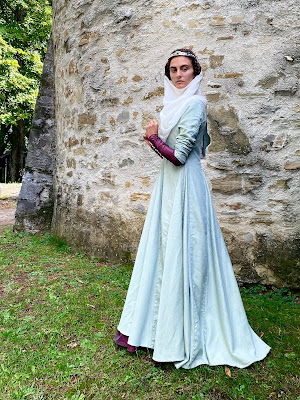My experience with museums in Italy
My experience with museums in Italy
(and many others complaining about how culture is treated in my country)
I'm the type of traveler that, reaching a new city, looks for an archaeological museum as the first thing. “Archaeological museums have the same stuff in every city” will say someone. And they are partially right. But that’s the point: I always feel a shiver of amazement in noticing that in times so distant from ours—times in which travel was not simple as today—in areas that are enormously distant from each other, objects were so similar. It bears witness to trade routes, cultural exchanges, multi-ethnicity, human ties and the complexity of the social fabric.
The human value of these testimonies is invaluable. But maintaining it comes at a cost.
If you want to visit a museum, you have to pay. The visit’s income goes to finance the maintenance of the archaeological finds, the museum’s workers, future research, and it will allow the museum to pay the bills so people can visit it and immerse themselves in history.
In Italy it’s different.
Culture in Italy is free (unless you go to see the main and most famous attractions).
A lot of Italians like to point this out when they go abroad. They love to patriotically say “Italy is a civilized country, culture is accessible to everyone”.
So accessible that if you want to visit a public museum, you can only go there on even Sundays in the warm (but not too much) months, rolling a D20 for initiative with a result above 18.
Most of the museums in Italy are free or have such a negligible symbolic price that don't even cover the costs of paying the electricity bills. This still doesn't make them accessible.
If a country wants to make culture free and accessible it must allocate substantial funds, because somehow the costs must be covered. In recent years (a decade?) Italy has continued to drastically cut funds for culture. Culture of all kinds, starting from school.
I talked about it very quickly on instagram, and immediately some interesting considerations jumped out: “From the foreign lens Italy is the country of culture. Museums, art, history. Yet, once removed the filter, it almost seems that Italy is into the great museums and main attractions for mere economy, and then leaves aside everything that isn't touristic". From my point of view, and I will be tough on this, Italy is the country of tourism monetization. Not of culture.
How can we call “the country of culture” a state that not only doesn’t allocate enough funds for culture but doesn’t even pay for education which would push people to take an interest in culture and visit museums?
Even the volunteers (yes, because many are volunteers or legally underpaid with "civil service") of the public museums are amazed when you actually want to visit it. First they ask if you are in the wrong building. “The coffee shop is next door”, they tell you. Secondly they look out the window to figure out if it's raining and if you're just looking for shelter. And when you ask for a ticket they don't know exactly how to behave either.
Anecdote. We had two hours to spare in an Italian city before catching a train home. We found the archaeological museum, but we were a little prevented by the presence of suitcases that we didn't know where to leave. The conversation went like this:
The smile that person made? Unforgettable.
There is no culture in proposing obsolete and outdated scholastic programs, or in letting "professors" convinced that women are not made for university hold the chair just because they are exponents of their subject, nor in demanding that museums be managed from underpaid graduates because there is no intention of hiring staff paying them what they actually worth.
Italy (in words, because there would be a great speech here too) is the country of doctors, engineers, nurses. Of all those jobs that are considered "worthy". When you get out of high school and you have to choose your career, if you don't choose a scientific path everyone looks at you with a mixture of suspicion and compassion. There is no work in that sector. You will be unemployed. You have to find yourself a rich husband. You need to get a real job. You must have a rich in family. You have to choose something more useful.
In Italy, a country so rich in history, art and literature, we have no work for archaeologists, historians, art historians and so on.
It is trivially a job considered less important and this "discrimination" starts right from the upper levels who do not consider culture important enough to invest in it.
This is why we find ourselves with public museums with improbable and inaccessible timetables—two Sundays a month but only in the summer, not in August because the staff is on vacation and not even in winter because it's cold and keeping the heating costs a lot; archaeological sites re-buried due to the impossibility of making them accessible and maintaining them over time, whit the only choice to visit them on paper between the lines written by the archaeologists who worked there. This is why we will continue to put up with professors without any teaching talent who have now taken root in their chair and will allow themselves not to appear for exams just because they feel like it, without any consequences. That's why we need people talking about culture for free on social media to educate people who—through no fault of their own—come out of high school still convinced that the Middle Ages were a dark age.



That's right, but in Italy many people has a passion for the middle ages. A lot of them developed this passion thanks to professor Alessandro Barbero, an history teacher who explains story on TV shows and with books and podcasts. He is a middle ages professor at the Torino university and for us he looks like a star... (sorry for my bad english... I didn't write english texts for a long time...)
ReplyDeleteThanks for sharing, many European countries rest on their laurels, and treat tourism like the holy grail they deserve, not acknowledging the fact that the whole reason there is tourism in Europe is its rich documented history!! It is tragic that archeological sites in Italy are covered up, though at least this preservation means there’s hope for future generations to do better. Here in Spain, many archaeological sites seem to be left upen to the elements, rotting slowly away.
ReplyDeleteThanks for sharing. It’s sad that some sites are covered up, but at least they will theoretically be preserved for more invested future generations… I find that many European countries rest on their laurels when it comes to protecting/expanding/celebrating their vast historic heritage. Tourism is seen as the supreme interest, yet the main reason people visit europe is the cultural heritage! And yet here in spain the culture is reduced to flamenco, and the archeological sites are “stabilized” (if they are lucky) and left out to rot. This is just my observation, but it would be so nice to see some of the attention and care they still manage in the UK. National Trust, English Heritage, etc - nothing is perfect but those have no parallel here in Spain.
ReplyDeleteI'm answering in English because you wrote in English, but, hi, fellow Italian here with a degree in the Humanities (Lingue e letterature straniere).
ReplyDeleteI agree with almost everything you said, but I feel that a few things need to be said. First is that, unfortunately, it's way more than a decade that our politicians have been cutting funds in everything related to culture and education. It's sad, and it's the main reason why I'm not even considering teaching in middle\highschool (to be fair, with the way becoming a teacher works in Italy it would be virtually impossible even if I wanted to - and bear in mind that I love teaching!).
The second thing is that Italy is not the country of doctors and nurses (maybe engineers can still find a stable job, but who knows). Students graduating from medical school can't get their specialization (there aren't enough funds), which means that they can't work, which means that there are less and less doctors, especially in smoller towns. Nurses are overworked (less doctors = more job for both nurses and the doctors we have), and I'm not sure it's that easy to find a job. Our healthcare system is getting more and more in the hands of private medical studios.
Most people have the ideas that you have to study scientific\juridic subjects in order to be successful in Italy. Unfortunately, it is rarely true.
We have a great cultural and natural heritage: our politicians treat both as a money-making system (and, on that, less famous cultural sites are inexpensive, but those who are super visited are incredibly expensive - while those who work there are terribly underpayed) with zero regard towards their protection.
Hopefully, I haven't made you as pessimist as I am! It was really interesting to read this from the point of view of someone who actually studied and work in the field!